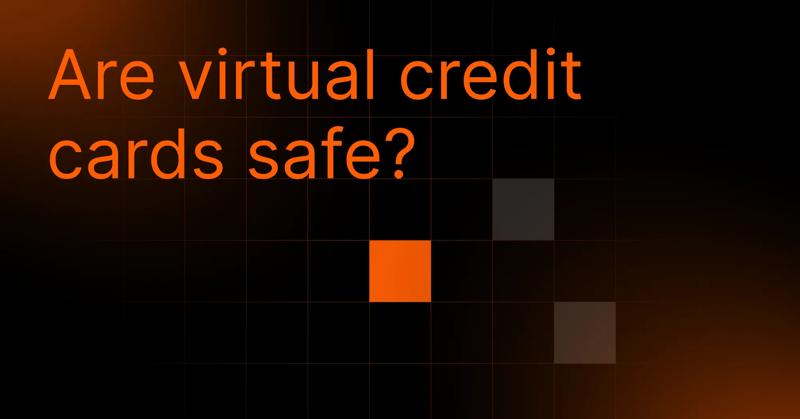Top 10 most common online scams: How to avoid them
Scammers are constantly finding new ways to exploit trust, such as through fake lotteries, job offers, or online shopping deals. Falling victim to these schemes can be stressful and costly, but it’s possible to avoid that. This guide explores the 10 most common online scams, how they work, and the steps you can take to stay safe.

What is an online scam?
An online scam is a type of fraud where someone attempts to steal personal information, trick you into giving away your money, or both while using the internet as their weapon of choice. These scams can show up in your inbox, social media feed, text messages, or even on legitimate-looking websites. Unlike the obvious phishing emails of the early 2000s, modern scams are much harder to spot. As these schemes have become more sophisticated and widespread, they’ve also shaped cyber insurance history by forcing insurers to account for online fraud, data breaches, and identity theft in their coverage.
How does an online scam work?
Online scams rely on psychological tricks: creating a sense of urgency, impersonating authority, indicating scarcity, and appealing to someone’s emotions. The goal is to get you to act before you think.
First, a scammer hooks you in. You’re contacted out of the blue via email, spam text messages, or a messaging app. Then they tell a story that triggers your emotions. It might come in the form of a sudden romance, a surprise lottery win, a job offer, a security alert, or a family “emergency.”
Scammers ask you to share personal information, click a link, install an app, scan a fake QR code, or send them money/crypto. The end result is usually financial devastation. Once the money is sent, the scammer vanishes.
Top 10 most common online scams
Let’s explore the most common types of online scams, so you know what to look out for.
1. Online dating scams
Online dating scams target people looking for love. You meet someone through a dating app or social media, and the connection gets intense quickly. They seem perfect, maybe even too perfect, until they hit you with a sob story and ask for money.
Common red flags:
- They refuse to video call or meet in person.
- They claim to live or work abroad, so they can’t meet up with you.
- They ask for money for medical emergencies, plane tickets, or problems with their family members.
Romance scams are financially and emotionally devastating. You may lose thousands of dollars and face long-term trust issues. These scams may lead to identity theft if you share personal details on dating sites.
2. Lottery scams
You receive an email or message saying you’ve won a prize, lottery, or sweepstakes. However, you don’t recall entering one. The catch is either that you need to pay a "processing fee" or "tax" before you can claim it, or you're required to click a link that will ask for your personal details.
Common red flags:
- You’re asked to provide bank details or send money upfront.
- The message uses urgent or congratulatory language but lacks specifics.
- They claim it’s from a real lottery company, but the email address looks fishy.
This scam might push you to pay the fee, but the prize never arrives. Worse, scammers may continue requesting more payments while harvesting your personal data through the lottery scam.
3. Online shopping scams
During an online shopping scam, you find a designer bag, a gaming console, or sneakers at a too-good-to-be-true price. But once you pay, the product never arrives. In some cases, you might even receive a cheap counterfeit instead. Black Friday and Cyber Monday scams often follow the same patterns, targeting shoppers looking for steep discounts on popular items.
Common red flags:
- Websites or social media shops have limited reviews.
- You see unrealistic discounts or "limited time offers."
- Sellers ask for payment via Cash App, credit card, gift cards, or cryptocurrency.
In an online shopping scam, you lose your money and risk having your personal info stolen. These scams are also more common during holidays or sales seasons, when more people are inclined to shop.
4. Loan scams
Loan scams target people who need cash quickly. A “lender” promises fast approval with low interest and no credit check, then asks for an upfront “processing fee,” “insurance,” or “collateral” paid via gift cards, wire, or crypto.
Some set up convincing portals and send “approval” emails to look legitimate. After you pay, they either disappear or keep inventing new fees. Others harvest your Social Security number, bank details, and pay stubs from the application itself, opening the door to account takeovers and identity theft. Having cyber insurance can help protect you financially if scammers exploit your personal or financial data in such attacks.
Common red flags:
- The lender guarantees approval without checking your credit.
- They ask for upfront payments.
You could lose money and may unknowingly provide sensitive information that can be used for future fraud.
5. Online casino scams
While many online casinos are legitimate, scammers mimic them to steal your money or personal information. Bonus offers with impossible wagering requirements are another tell since they’re designed so you never cash out. Handing over card details to a shady site can lead to unauthorized charges or wider fraud.
Common red flags:
- Unclear terms and conditions
- Exceptionally large bonuses or guaranteed wins
With this type of scam, you risk losing your initial deposit and exposing your financial data and personal information to fraudsters.
6. Banking scams
A banking scam often takes the form of phishing emails or SMS texts that look like they're from your bank. You’re asked to verify a transaction, reset your password, or click a link, which sends you to a fake banking page or installs malware on your device.
Common red flags:
- Generic greetings like "Dear customer"
- Grammar mistakes
- Urgent requests to click “now” or risk account lockout
Scammers can empty your account within minutes if they get your bank login. Knowing the types of phishing scams is a good way to prevent getting defrauded.
7. Charity scams
Charity scams exploit real emotional moments like natural disasters, global crises, or urgent medical emergencies. You might receive a heartfelt plea via a realistic website, social media post, or forwarded message that includes logos that mimic legitimate nonprofits, dramatic images, and stories designed to tug at your heartstrings. But your donation never reaches a true cause.
Common red flags:
- Fake websites or names that mimic legitimate nonprofits
- Emotional photos and stories
- Pressure to donate immediately, or you’re given a money order for a specific amount
8. Job scams
You see an online job listing with great pay and flexible hours, and no experience is needed. After applying, the “employer” asks for your personal information, bank details, or a fee for background checks or training materials.
Common red flags:
- Fake recruitment websites
- Impersonating legitimate companies
- Asking for gift card payments or wire transfers
When you fall victim to this scam, you end up with no job, out of pocket, and possibly a victim of identity theft.
9. Social media scams
Platforms like Instagram and Facebook are hotspots for scams online. On social networking sites, you get exposed to fake influencer giveaways or cloned brand accounts offering huge discounts. Scammers use your trust in these platforms to manipulate you. The most common ones are Facebook Marketplace scams, Instagram scams, and Telegram scams.
Common red flags:
- “Verified” accounts with no blue tick
- Giveaways that ask for money to “claim” a prize
- Unsolicited DMs from brands or people you don’t know
You could be lured into AI phishing scams, fake marketplaces, or investment cons. And in many cases, your personal data becomes the real prize.
10. Messaging scams
In a messaging scam, you might get a message that your package “can't be delivered — click here,” or a scary alert about a “suspicious bank login.” Some impersonation scams even mention family members in urgent situations like “Mom, got a new number — can you send me $500?” Each message includes a link or urges a quick response. Before you know it, you’ve already sent money or shared personal information.
Common red flags:
- Urgent language pressuring you to act immediately
- Messages from unknown or suspicious numbers
- Links with unusual or misspelled URLs
- Requests for money, personal information, or login credentials
What to do if you are already a victim of an online scam
If you’ve fallen for an online scam, follow these steps:
- Stop all communication with the scammer.
- Report the scam to your bank, credit card provider, or payment platform immediately.
- Change your passwords, especially if you used the same one on multiple accounts.
- Monitor your credit and bank accounts for suspicious activity.
- File a report with law enforcement agencies like the FTC or your country’s fraud protection agency.
- Freeze your credit if identity theft is involved.
- Leverage an identity theft protection service like NordProtect to get 24/7 dark web monitoring, security alerts, and identity theft recovery support.
Recovering from a scam can feel overwhelming, but taking these steps quickly can help you minimize the damage and regain control.
How to protect yourself and avoid online scams
Online scams are evolving, but so can your defenses. Follow these tips to stay ahead and avoid online scams:
- Think before you click. Don’t trust unsolicited messages or links because they may lead to information-harvesting links.
- Verify the source. Contact companies or people directly using official contact methods, and make sure you’re on legitimate websites.
- Keep your information private. Don’t share personal or financial details via unsecured channels. Learn what information cyber criminals steal.
- Use strong passwords. Use a password manager to help create and safely store strong passwords.
- Install identity theft protection tools. Services like NordProtect can alert you if your data gets exposed and help you with recovery.
- Get protection for your business. Most companies face various cyber threats, including online scams designed to steal sensitive data. If you’re a business owner, you should go through our cyber insurance coverage checklist and find out how to get the best policy for your company.
- Be wary of suspicious QR codes. In brushing scams, targets may receive an unsolicited package with a suspicious QR code. Avoid scanning it until you’re sure the package is from someone you know.
It only takes one wrong click or a convincing message to become a victim of internet fraud and suffer major financial loss, but it’s possible to prevent that. NordProtect gives you a layer of defense that works around the clock, monitoring for suspicious activity and alerting you to potential identity threats.
Scams are in the air!
Save 71% on identity theft protection with fraud insurance
30-day money-back guarantee
View promotion details.
Ugnė is a content manager focused on cybersecurity topics such as identity theft, online privacy, and fraud prevention. She works to make digital safety easy to understand and act on.



